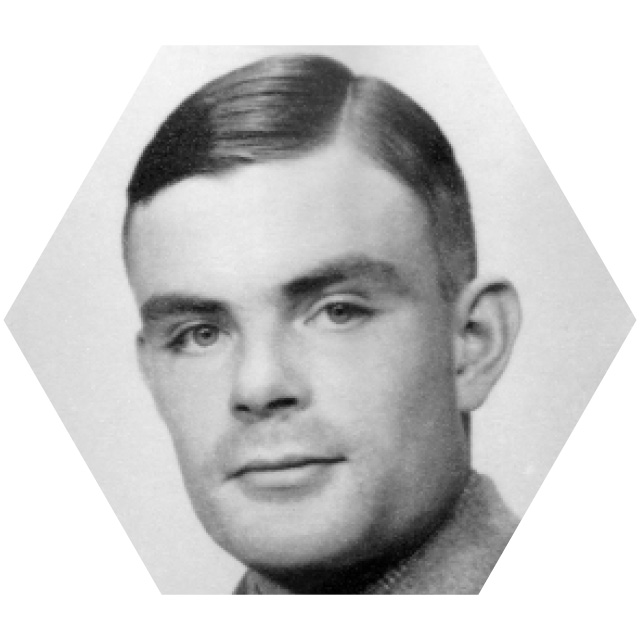Alan Turing

Alan Turing (1912-1954) was a British mathematician, logician, and computer scientist who is widely regarded as one of the pioneers of modern computing and artificial intelligence.
During World War II, Turing played a pivotal role in breaking the German Enigma code, a feat that significantly aided the Allied forces and is believed to have shortened the war. His work on developing the Bombe machine and his insights into code-breaking techniques at Bletchley Park are considered crucial milestones in the history of cryptography.
Alan Turing was a gay man and his sexual orientation led to immense personal hardship during a time when homosexuality was criminalized in the United Kingdom. In 1952 Turing was convicted of "gross indecency" and was forced to undergo chemical castration with hormone injections an alternative to imprisonment. Turing died in 1954 from cyanide poisoning, with his death officially ruled as suicide.
In recent years, there has been a widespread recognition of Turing's immense contributions and the injustice he faced. In 2013, he was posthumously pardoned by the British government, and his legacy has been celebrated for his profound impact on science, computing, and the broader struggle for LGBTQ+ rights and equality.
“As a LGBTQ+ person in science, it is important to remember the hardships endured by our predecessors which have contributed to the increasing tolerance and acceptance of my minority not only in academia, but in society also.” - Anonymous nominator

